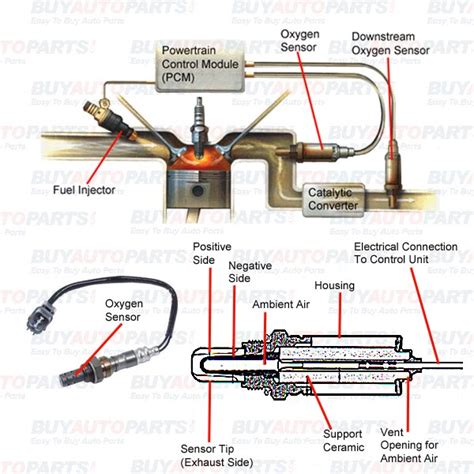Your Oxygen Sensor: Quick Repair or Long Wait?
Your car's oxygen sensor plays a crucial role in fuel efficiency and emissions control. When it malfunctions, you'll likely notice a drop in gas mileage, a sputtering engine, or even a check engine light illuminating your dashboard. But facing this issue leaves you with a critical question: should you opt for a quick repair, or is it acceptable to delay the fix? The answer, unfortunately, isn't a simple yes or no. Let's delve into the factors to consider.
What Does an Oxygen Sensor Do?
Before we address repair timelines, understanding the sensor's function is key. The oxygen sensor, usually located in the exhaust manifold, measures the amount of oxygen in the exhaust gases. This information is fed back to the engine's computer (ECU), allowing it to adjust the air-fuel mixture for optimal combustion. A faulty sensor leads to an imbalanced mixture, resulting in the problems mentioned earlier.
How Long Can You Wait to Replace a Bad Oxygen Sensor?
This is the million-dollar question, and the answer depends heavily on the severity of the malfunction and your vehicle's specifics. While some minor issues might not immediately cripple your vehicle, driving with a bad oxygen sensor for extended periods can lead to:
- Reduced Fuel Efficiency: A significant increase in gas consumption is a common symptom, costing you money at the pump.
- Increased Emissions: Your car will release more pollutants into the atmosphere, contributing to environmental damage.
- Engine Damage: Prolonged operation with an incorrect air-fuel mixture can cause damage to catalytic converters, spark plugs, and other engine components, resulting in far more expensive repairs down the line.
- Failed Emissions Test: A faulty oxygen sensor will almost certainly cause you to fail your next emissions inspection, leading to further delays and expenses.
In short: While you might not experience catastrophic engine failure overnight, delaying a replacement is generally not advisable. The longer you wait, the more likely you are to incur additional, and potentially substantial, repair costs.
How Much Does Replacing an Oxygen Sensor Cost?
The cost varies based on vehicle make and model, the sensor's location (some vehicles have multiple sensors), and labor costs. Generally, you can expect to pay anywhere from $100 to $500 or more for parts and labor. However, opting for a cheaper, aftermarket sensor might lead to a shorter lifespan compared to an Original Equipment Manufacturer (OEM) part.
Can I DIY Oxygen Sensor Replacement?
Replacing an oxygen sensor is possible for mechanically inclined individuals. However, it requires some mechanical expertise and the right tools. Improper installation can lead to further complications. If you're unsure, it's best to leave the job to a qualified mechanic.
What Are the Signs of a Failing Oxygen Sensor?
Identifying a failing oxygen sensor early is crucial. Common symptoms include:
- Check Engine Light: This is the most common and obvious indicator.
- Reduced Fuel Economy: Noticeably lower gas mileage.
- Black Smoke from Exhaust: Excessive unburnt fuel being expelled.
- Hesitation or Rough Idle: The engine may struggle to start or run smoothly.
- Failed Emissions Test: The test will detect the imbalanced air-fuel mixture.
How Long Does an Oxygen Sensor Last?
The lifespan of an oxygen sensor typically ranges from 40,000 to 100,000 miles, but this can vary depending on driving conditions and vehicle maintenance. Severe driving conditions (frequent stop-and-go traffic) can shorten the sensor's lifespan.
Is it an Emergency to Replace a Bad Oxygen Sensor?
While not an immediate "emergency" like a flat tire, a faulty oxygen sensor should be addressed as soon as reasonably possible. The potential for increased repair costs and environmental impact makes prompt replacement a wise decision.
In conclusion, while a quick repair isn't always immediately necessary, delaying the replacement of a bad oxygen sensor carries significant risks. Weighing the potential costs of further damage against the relatively modest cost of sensor replacement will ultimately guide your decision. Prioritizing timely repair is always the best approach for both your vehicle's health and your wallet.

